FIFA World Cup 2018: From Russia with spills, thrills and the VAR
This edition of the World Cup entertained right from the kick-off in the round robin game between hosts Russia and Saudi Arabia.
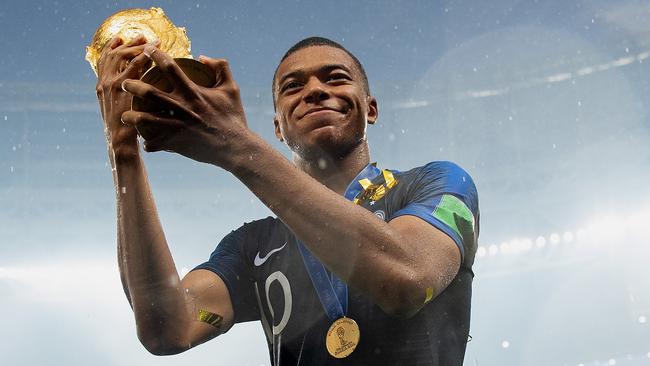
The best of modern World Cups? After Sunday’s final, perhaps we need to tweak that to the most wonderfully doolally.
A tournament you dared not look away from for fear of missing something extraordinary had a final played out to a soundtrack of thunder and lightning above Moscow, and a trophy presentation in a downpour for France, the world champions, that was almost biblical. It was an appropriately dramatic, almost cinematic, climax.
The thrilling mayhem of a stormy evening in Moscow was, in so many ways, in keeping with a tournament that turned out to be less about Russia than, quite simply, about football; its transcendent drama, its universal appeal, its power to enthral billions of us across the planet and, as with Sunday’s denouement, to stir debates that never end.
This victory for France over Croatia still will be argued about four years and four months from now when everyone rocks up to Qatar in November 2022 hoping we get similar helpings of nightly thrills. We should be so lucky.
Has there been a tournament more unceasingly compelling than Russia 2018? Not among the six that this correspondent has covered.
It surely was not only in England that international football was restored at the pinnacle of the game, worth all those half-baked friendlies or Thursday night games against Lithuania to savour these five weeks, drawing record audiences to the global game. The quality may be at its best in club football but it is on this stage that storylines have unparalleled magnitude.
If you doubt that, consider that Kylian Mbappe was the world’s second most expensive footballer when he arrived in Russia, but it was in the past fortnight here that he truly became a superstar, his potential — a little raw but electrifying as we saw in the final — known now to so much more of the planet, including those who care little for football but are drawn to a World Cup every four years.
They are attracted by stars and also by stories such as witnessing Croatia, with a population of just four million, come so close to pulling off a sporting wonder and, for spells, outplaying France. Nationalism matters at a World Cup but internationalism, a delight in great feats whoever achieves them, matters so much more.
This was a tournament so good that it could even make you look forward to Qatar 2022. Football’s redeeming qualities might even save that scandalous decision to jam a World Cup into a tiny emirate in the winter.
Who knows what form of video assistant referee will be in operation by then? It will exist. FIFA will not be giving up, nor should it even if the system did colour this final in a way that felt unsatisfactory even to its advocates.
Of all the reviews, there have been only two questionable calls, both similarly harsh handballs — and the law of Sod dictated that one of them should not just be in the final but with it so evenly poised, Croatia the better of the teams when the ball struck Ivan Perisic’s arm in the 38th minute.
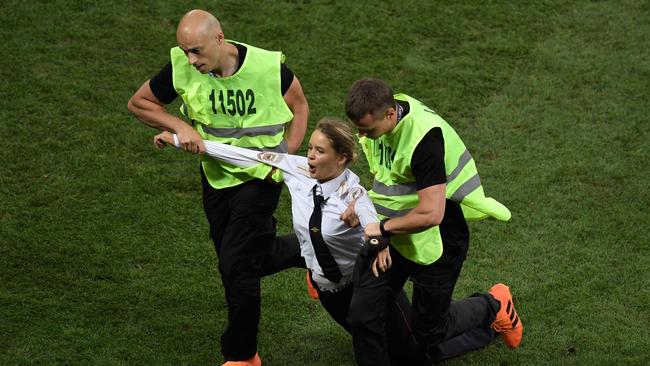
With Law 12 stating that “handling the ball involves a deliberate act” and that considerations must include “the movement of the hand towards the ball (not the ball towards the hand)” and “the distance between the opponent and the ball (unexpected ball)”, then Croatia had every reason to feel that this was a harsh interpretation, the type that would come about only through multiple slow-motion replays.
We are all feeling our way in this — as the hesitation from Nestor Pitana, the referee from Argentina, showed as he left the monitor, then doubled back at one point — and either the wording on handball needs changing or the world re-educating about what handball constitutes.
On matters of interpretation, referees talk about giving decisions that the game expects — and while we should forget howls of “disgrace” from ranting commentators, for too many of us this felt like a new type of VAR handball.
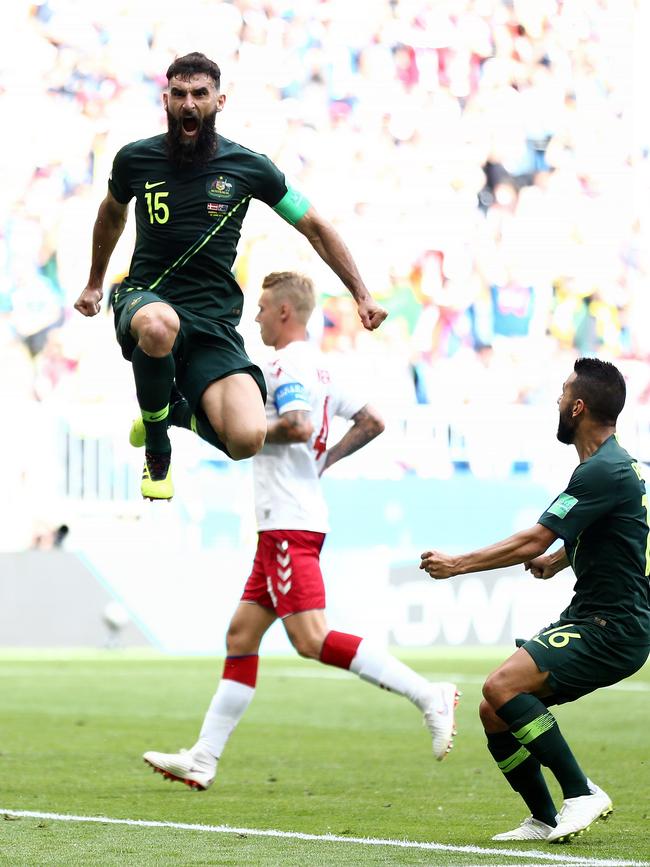
Still, the system has much to offer. It is surely no coincidence that there have been no red cards for violent conduct at this World Cup, players knowing they are under scrutiny. Numerous mistakes around penalties and goals have been rectified.
Despite the worst fears, VAR has not been the death of spontaneity, the undermining of officials, the beginning of the end of football as we know and love it — not even on Sunday — when it has been such a fabulous tournament.
It can strengthen the officials — such as on grappling — and needs to be pursued. But, as we were reminded on Sunday in the most dramatic circumstances, it will never end arguments.
The real shame was that the final whistle had to be blown on Russia 2018. The story of England captivated the audience at home — and drew about 30 million to watch the semi-final defeat by Croatia — but that was only one fragment of a competition so rich, so eventful right to the last kick.
It had a remarkable story even before kick-off when Spain sacked Julen Lopetegui, their coach, for surreptitiously negotiating with Real Madrid. Count that as an assertion of country over club.
In the first game, Russia beat Saudi Arabia 5-0 in a stunning rebuttal to the widespread expectation that the hosts could be an embarrassment, one flick from Denis Cheryshev lifting the mood, signifying the potential.
We were not disappointed. Only two days in we had a classic, the 3-3 draw between Spain and Portugal and the Cristiano Ronaldo free kick that showed how the greats bend events to their will.
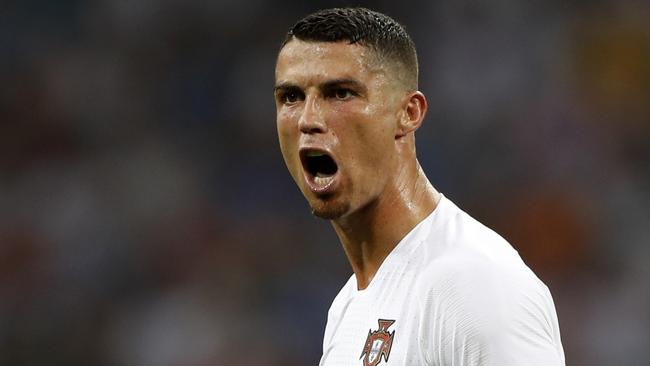
Lionel Messi did the same with his own glorious strike on the run against Nigeria, but it became a World Cup to be renowned for fallen giants; not just individuals but nations, especially Germany, the holders, who lost so chaotically.
How we chuckled, with our schadenfreude headlines, when Germany went out, yet even they left an indelible memory in that stunning late Toni Kroos free kick against Sweden.
We had so many spectacular goals — Benjamin Pavard’s spinning, curling strike for France against Argentina a personal favourite — and barely a day when we were not entertained, whether by an improbable victory for Iran or Diego Maradona cavorting wildly in the stands.
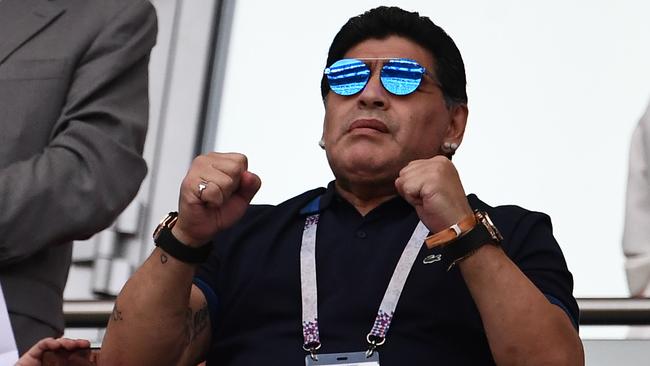
On four nights, we lurched from the thrills of Uruguay beating Portugal, including that wondrous goal when Luis Suarez belted a cross on to Edinson Cavani’s head, to Russia knocking out Spain on penalties; to Belgium coming from two goals down against Japan with one of the most breathtaking winners, and we still had England winning a penalty shootout for the first time at World Cups, beating Colombia in the round of 16.
Night after night the drama flowed, right to the moment on Sunday when France and Croatia were going at each other in final with the first own goal, the worst goalkeeping blunder and VAR disputes among six goals of one of the most dramatic of World Cup finals.
It had pitch invaders too, four of them from Pussy Riot. We can fear for what will happen to those protesters for daring to invade a match being watched by Vladimir Putin which is, of course, their point.
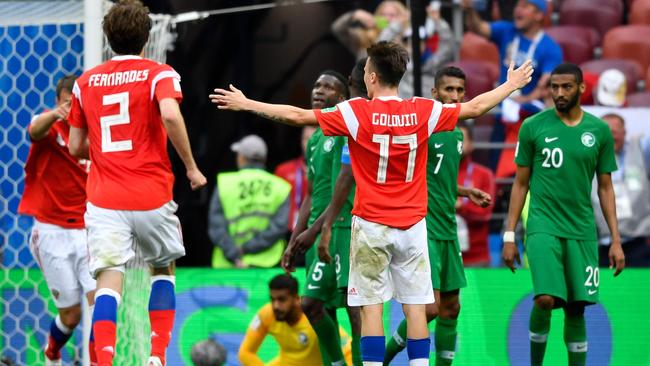
But to speak to Russians in cabs, bars and taxis — the wonders of the Google translate app — was to hear them ask that we respect the warm hospitality shown to more than 700,000 foreign fans who came for the World Cup. Across the host cities, we saw the best of Russia, just as London 2012 Olympics brought the best of London.
But, mostly, it is sporting memories that we are left with and if the English were tempted to dwell on “what ifs”, the heroic quality of Croatia and Luka Modric, deservedly honoured with the Golden Ball for the tournament’s outstanding player, told us that we did well to get to so far.
It was a World Cup of surprises, almost all of them good. A World Cup of changed perceptions, for Russia and for a revived England team. Perhaps we should leave the last word to Didier Deschamps, given that he is now in a very elite club to have won as player and coach. “I have never seen or lived through such a World Cup,” he said. I think we all know what he means.
The Times





